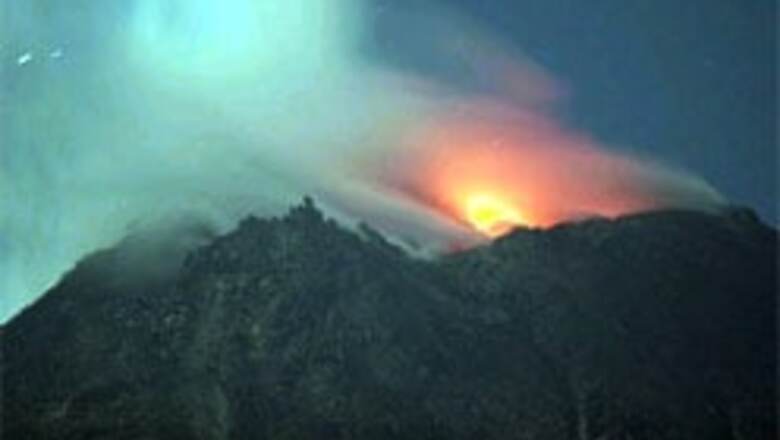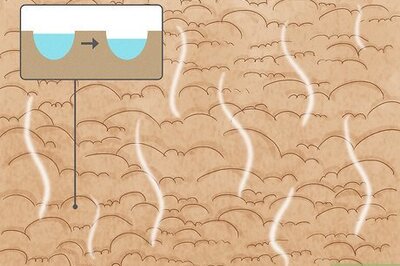
views
Mount Merapi, (Indonesia): Scientists warned that erupting Mount Merapi still posed a deadly threat to villagers living on its lava-scared slopes, even as volcanic activity eased on Tuesday.
Clouds of searing hot gases, debris and rock continued to avalanche down the mountain, but not as far or as often as they did Monday, which saw the most violent activity in several weeks.
''That is Merapi,'' said Ratdomopurbo, the region's chief volcanologist, who uses a single name. ''She is always fluctuating.''
A large unstable lava dome perched on the crater formed by magma from within the volcano remained in place and could yet collapse, triggering a deadly surge in ash and gas, Ratdomopurbo said.
Merapi, whose fertile slopes rise from the center of Indonesia's densely populated Java Island, last erupted in 1994, sending a gas cloud 10 kilometers (six miles) down its flank that incinerated 60 people.
Authorities Saturday declared the highest-category threat, triggering mandatory evacuations for more than 5,000 people living closest to the crater. They are staying in mosques, schools and government buildings.
''I have had enough of this,'' said 70-year-old refugee Joratma, a grandchild playing at her feet, early on Monday. ''All I want to do is go home.''
Many people living in the evacuated area go home in the day to tend to crops and animals, either on foot or on trucks provided by local authorities.
But some people have dismissed the warnings altogether
Most Indonesians are Muslim, but many also follow animist beliefs and worship ancient spirits. At full moon, they may trek to the crater's rim to throw in rice, jewelry and live animals to appease the volcano's spirits.
An 80-year-old man, appointed by the nearby royal court as Merapi's spiritual guardian, said he was not leaving even though his house is in the mandatory evacuation zone.
''There is no risk,'' Maridjan said outside his home, just six kilometers (four miles) from the crater.
Authorities say Maridjan is setting a bad example.
President Susilo Bambang Yudhoyono said that more people were now leaving the area, and that the government had learned much about disaster management from the 2004 tsunami.
''Let me say you are doing a good job,'' he told local emergency officials. ''God willing, whatever happens, we can get over it.''
Still, about 200 villagers are refusing to leave.




















Comments
0 comment